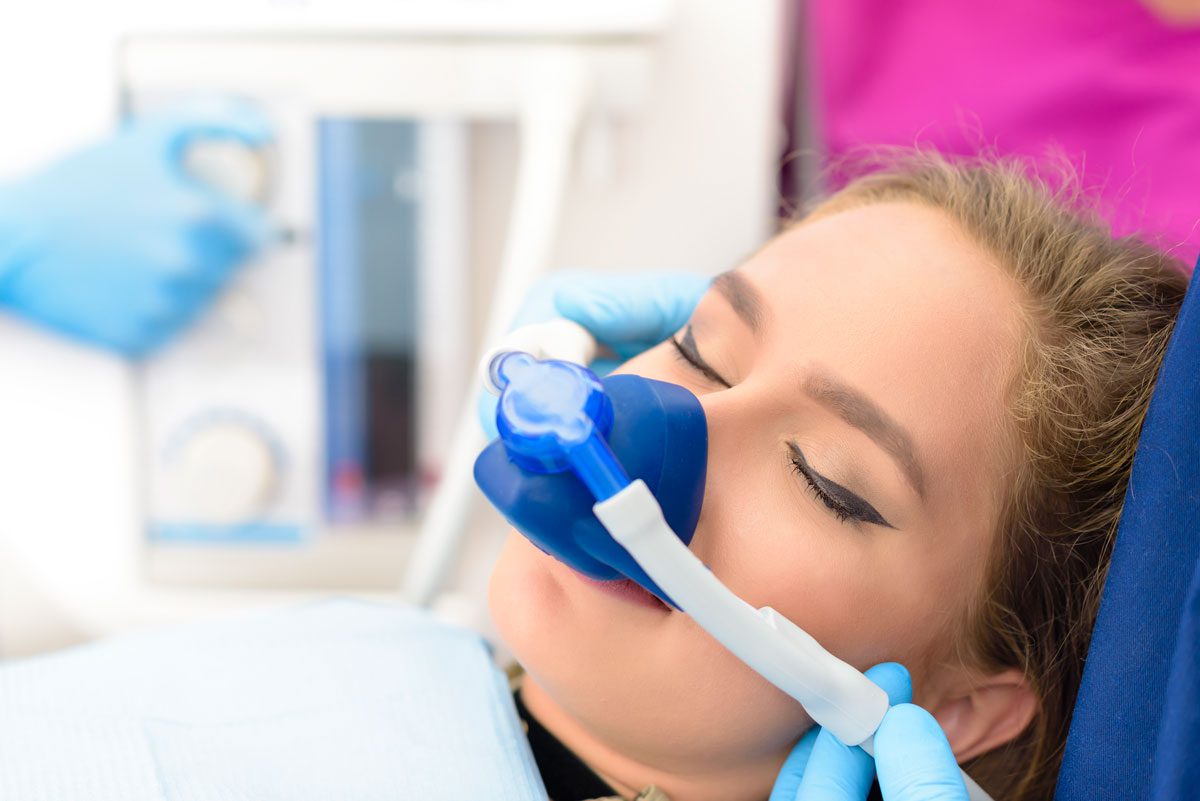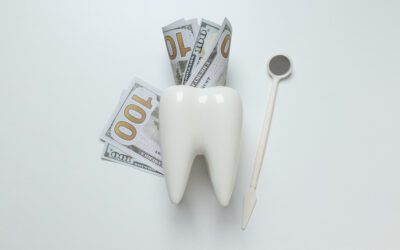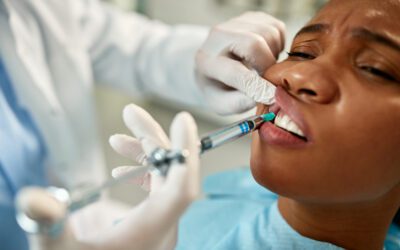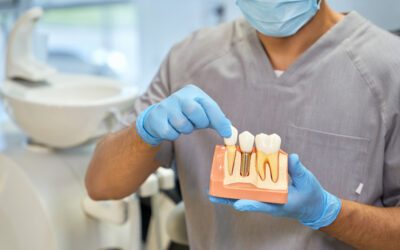What is Sedation Dentistry?
Dental professionals use sedation dentistry to help patients feel calm and relaxed during dental procedures. This approach is particularly beneficial for those who experience dental anxiety, allowing them to undergo necessary treatments without fear or discomfort. While sedated, patients are still technically awake but experience a carefree, comfortable state with reduced awareness of their surroundings.
There are various types of sedation dentistry, ranging from mild forms like nitrous oxide (laughing gas) to more significant forms like intravenous (IV) sedation. Each method has benefits and applications, depending on the specific procedure and the patient's needs. The choice of sedation depends on factors such as the patient's anxiety levels, the complexity of the dental procedure, and any pre-existing medical conditions.
For many individuals, sedation dentistry provides a safe and effective solution for overcoming dental anxieties and making necessary dental care more accessible. As a result, patients can maintain a healthier smile and ensure that dental issues are promptly addressed without the stress and fear that can accompany traditional dental appointments.
Understanding Sedation Dentistry
What is Sedation Dentistry? Sedation dentistry is a technique used to assist patients during dental procedures by using medication. Its primary objective is to ease anxieties and phobias, assisting individuals to remain calm and comfortable during their dental appointments. This approach can be especially beneficial for those who fear dental visits, allowing them to receive proper care without distress.
Types of Sedation
Various types of sedation methods are used in dentistry, catering to different levels of anxiety and dental procedure requirements. Some common types include:
-
- Nitrous oxide – Commonly called as laughing gas, this mild sedative helps patients stay relaxed while awake during the dental procedure.
- Oral sedation – Patients take a prescribed medication by mouth before the appointment to help them feel calm and relaxed.
- IV sedation – Intravenous sedation involves administering sedatives directly into the bloodstream for a more controlled and immediate effect.
- General anesthesia – General anesthesia can render the patient unconscious for more complex or invasive dental procedures. This ensures they are completely unaware of the process taking place.
Levels of Sedation
Depending on the sedation method used and individual patient needs, there are four main levels of sedation:
-
- Minimal sedation – The patient remains awake and alert, experiencing mild relaxation.
- Moderate sedation – The patient is more relaxed and may have slurred speech or forget some procedure details.
- Deep sedation – The patient is on the edge of consciousness but can still be awakened if necessary.
- General anesthesia – The patient is unconscious and completely unaware of the procedure.
Benefits of Sedation Dentistry
What is sedation dentistry's benefit? Sedation dentistry offers numerous benefits to patients undergoing dental procedures, ranging from anxiety reduction to improved efficiency during treatments.
What is sedation dentistry's effect on anxiety? Reducing Anxiety and Fear
One significant benefit of sedation dentistry is that it eases anxieties and phobias related to dental visits.
Patients who experience fear or nervousness can receive sedation to help them remain calm and comfortable during dental procedures. This allows individuals who might otherwise avoid dental care due to anxiety to obtain the necessary treatments for maintaining oral health.
What is sedation dentistry's effect on pain? Pain Management
Another advantage of sedation dentistry is its ability to provide effective pain management.
Specific dental procedures can be painful or uncomfortable, and sedation helps relieve pain and discomfort for patients. Sedation methods, such as IV sedation, provide quick-acting and easily adjustable pain relief, ensuring the patient feels minimal to no pain during treatment.
What is sedation dentistry's effect on the efficiency of treatment? Increased Efficiency
Sedation dentistry also increases the efficiency of dental treatments.
Dentists can often work faster and more effectively when patients are relaxed and free of anxiety or pain. As a result, treatments may be completed in fewer appointments, saving time and resources for both the patient and the dental provider.
What is Sedation Dentistry's Ideal Patient Profile? Candidates for Sedation Dentistry
Medical Conditions
Some patients with specific medical conditions may be suitable candidates for sedation dentistry.
Conditions such as Parkinson's disease, cerebral palsy, or other neuromuscular disorders can make it difficult for individuals to maintain control of their body movements, making dental procedures challenging. Sedation can help relax these patients and make dental treatment more comfortable and manageable.
Dental Phobia
Sedation dentistry is an ideal option for individuals who suffer from a dental phobia (dentophobia) and anxiety.
Such patients may have a fear of pain or negative past experiences related to dental visits, leading to anxiety and stress. According to WebMD, sedation dentistry can help alleviate these fears by ensuring a relaxed and comfortable experience, making the procedure more accessible, and assisting patients in maintaining better oral health.
Special Needs
Patients with special needs, such as autism or Down syndrome, may also be candidates for sedation dentistry.
These patients might have difficulty coping with the sensory input or the requirements of a dental visit, which can lead to challenging or uncooperative behavior. Sedation dentistry can help make dental treatments more manageable and less stressful for these patients, their families, and their dentists.
Colgate suggests that patients with a strong gag reflex or requiring multiple or lengthy dental procedures may also benefit from sedation dentistry.
Risks and Safety Precautions
Possible Side Effects
Sedation dentistry, while generally safe, may present some short-term risks, including lingering drowsiness, dry mouth, nausea and vomiting, headaches, and bruising from the IV.
It's not uncommon to experience dizziness as well. The majority of these side effects are temporary and can be managed with appropriate care and guidance from a dental professional.
Contraindications
Some individuals may be at higher risk for complications due to sedation dentistry.
People with heart, liver, lung, or kidney problems, those with disabilities, older patients, and young children are more likely to suffer complications. Consultation with a healthcare provider is essential to determine the most suitable form of sedation for each patient, considering their medical history and individual needs.
Sedation Monitoring
During moderate or deep sedation procedures, it is crucial to carefully monitor the patient's heart rate, blood pressure, and breathing.
The use of an oxygen mask may be necessary if the patient's breathing becomes too shallow. Proper monitoring and prompt response to changes in the patient's condition are crucial to ensuring the safety and success of sedation dentistry.
Costs and Insurance Coverage
Factors Affecting Cost
What is sedation dentistry's cost?
The cprice of sedation dentistry varies depending on several factors. Some of these factors include the type of sedative used, the length of the procedure, and the specific dental treatment being performed. Depending on the factors mentioned, the costs can range from $25 to $1,000.
Sedation fees are usually separate from the costs of dental procedures, such as a filling or crown. However, some dentists may offer relaxation sedation at no additional cost when performing extensive cosmetic dental work (typically with total costs of $20,000 to $40,000 or more), as discussed by CostHelper.
Insurance Considerations
What is sedation dentistry's insurance coverage?
Regarding insurance coverage, it's essential to know that most dental insurance policies only cover $1,000 to $1,500 in total treatment costs per year.
The fee for your dental treatment, plus the cost of sedation, may exceed your policy's coverage. In such cases, you may want to look into dental savings plans as an alternative since they do not have an annual coverage cap.
It's advisable to consult with your insurance provider beforehand to learn about the specifics of your policy regarding sedation dentistry coverage. Some insurance plans may offer partial or complete coverage, while others might not cover sedation dentistry at all.
Choosing a Sedation Dentist
Sedation dentistry can be a beneficial solution for patients with fear or anxiety during dental visits. Choosing the right sedation dentist ensures a comfortable and successful experience. This section will discuss the critical factors when selecting a sedation dentist.
Credentials and Training
Verifying their credentials and training is essential when looking for a sedation dentist.
Not every dentist is qualified to administer sedation techniques. A dentist with appropriate training in sedation dentistry should have the proper certifications and licenses to practice.
The American Dental Society of Anesthesiology (ASDA) is a reliable source for finding sedation dentists.
There are various types of dental sedation, such as oral sedation, IV sedation, and nitrous oxide, each requiring specific training and expertise. Ensure the dentist is certified in the type of sedation that best suits your needs and has ample experience administering it.
Questions to Ask
What is sedation dentistry's list of preliminary questions?
Before selecting a sedation dentist, scheduling a consultation and asking relevant questions are advised. Here are some essential questions to consider:
-
- What type of sedation techniques do you offer?
- How many years of sedation dentistry experience do you have?
- What certifications and licenses do you hold for practicing sedation dentistry?
- How do you handle patients with dental anxiety or fear?
- Could you provide references from satisfied patients who underwent sedation during their dental procedures?
Asking such questions will help you determine the dentist's expertise and experience in sedation dentistry and decide whether they suit your needs.
Selecting a sedation dentist requires thorough research into their credentials, training, and experience and asking relevant questions during consultations.
Finding the right sedation dentist will provide a more comfortable and anxiety-free dental experience.
Good luck!




